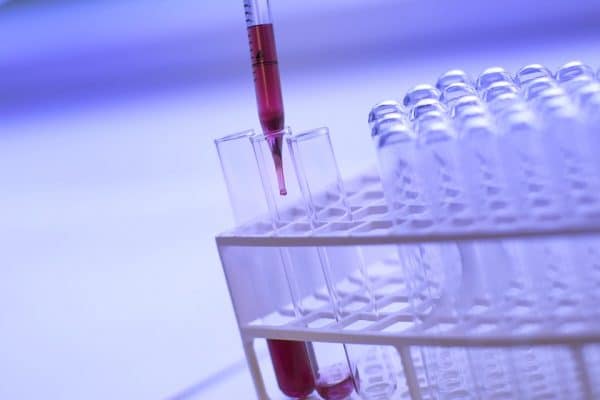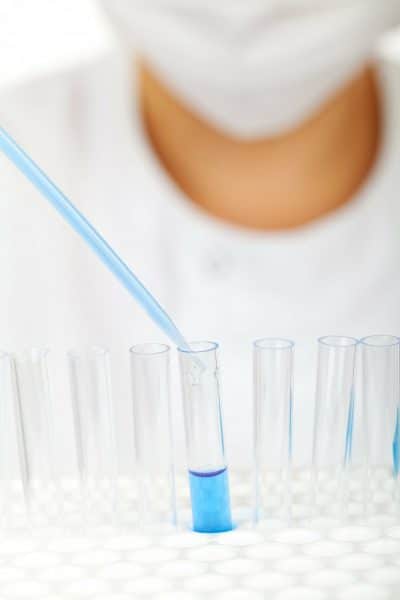FUNCTIONAL MEDICINE TESTS & DIAGNOSTICS Toronto
The Dempster Clinic - Center for Functional Medicine located in Toronto collaborates with a number of laboratories to ensure the availability of a wide range of laboratory testing. The testing screens for various conditions, evaluates overall health and allows for accurate tracking of progress throughout treatment.
 Many people arrive at the clinic having already completed standard blood work, x-rays and/or other tests & diagnostics. Often times, these tests come back in the “normal” range and unfortunately, these individuals continue to feel unwell and do not function at their full potential.
Many people arrive at the clinic having already completed standard blood work, x-rays and/or other tests & diagnostics. Often times, these tests come back in the “normal” range and unfortunately, these individuals continue to feel unwell and do not function at their full potential.
In order to get to the root of the problem, our team at The Dempster Clinic – Center for Functional Medicine applies a model that focuses on treating your body as a whole system, that treats the causes not merely focusing on the symptoms. We view the body as a whole organism, rather than simply a collection of organs. Our team takes the time to listen to our patient’s story and we map their personal timeline. We examine environmental, dietary, lifestyle, and genetic factors that can influence long-term health and complex chronic disease.
If you have medical coverage, please check with your insurance provider as testing is often covered under your extended medical plan. Our clinic offers a wide variety of testing to help diagnose the root cause of your health related issues. The list below includes all of the tests available at our clinic.
Please do not hesitate to contact our staff if you have any questions pertaining to our Functional Medicine Tests & Diagnostics.
tests & DIAGNOSTICS List
Amino Acid Analysis
Amino Acid Analysis allows for the identification of dietary protein adequacy and amino acid balance, gastrointestinal dysfunctions, forms of protein intolerance, vitamin and mineral deficiencies, renal and hepatic dysfunction, psychiatric abnormalities, susceptibility to inflammatory response and oxidative stress, reduced detoxification capacity and many other inherent and acquired disorders in amino acid metabolism.

Body Composition Analysis

Celiac Disease Testing
Celiac disease (gluten-sensitive enteropathy), sometimes referred to as sprue or coeliac, is an immune reaction to eating gluten, a protein found in wheat, barley and rye.
If you have celiac disease, eating gluten triggers an immune response in your small intestine.
Hormonal Analysis
While laboratories measure hormones in several ways, research indicates that the most accurate way to do so is through urine. Knowing your urine hormone levels is an important first step in assessing where your hormones may be out of balance and determining whether your current natural hormone regimen is working for you.

Stool Analysis
Stool Analysis For Digestion, Absorption And Microbe Measurement
The Digestive Stool Analysis (CDSA) is an invaluable non-invasive diagnostic assessment that permits Dr. Dempster, ND to gain a look at the overall health of the gastrointestinal (GI) tract. The CDSA evaluates the gastrointestinal function by assessing a select set of stool biomarkers.
Essential Fatty Acid Testing
Evidence of the adverse effects of fatty acid deficiencies has led to sharply increased consumption of essential fatty acid supplements. When incorporated into the cell membranes of the body, these omega-3 and omega-6 fatty acids function as precursors for eicosanoids that control a host of cellular functions and responses.

Food Allergy and Sensitivity Testing
An immunoglobulin E (IgE) test measures the blood level of IgE, one of the five subclasses of antibodies. Antibodies are proteins made by the immune system that attack antigens, such as bacteria, viruses, and allergens.

Lyme Disease Testing
Lyme disease is a world-wide infectious disease caused by microscopic bacteria carried by ticks. Unsuspecting humans and animals walking through woodlands and brushy areas may be bitten by a tick and never know it. The tiny ticks, some the size of poppy seeds, may stay on your body for hours to days.

Nutrient Testing
Nutrient Testing measures a variety of critical nutrients via a simple blood test. This test is used to help Dr. Dempster, ND to help identify your individual nutrient needs by evaluating your overall nutritional status and by assessing your need for essential nutrients. Nutrient analysis is a clinically effective diagnostic tool to assist in the prevention and management of a myriad of health conditions.

Organic Acids Testing
The Organic Acid Test (OAT) is a assessment for a wide variety of biomarkers related to yeast (candida) and bacteria toxicity – specifically clostridia bacteria. It also evaluates oxalate toxicity, as well as mitochondria function, and various markers for vitamin and neurotransmitter problems.

Small Intestine Bacterial Overgrowth (SIBO) Testing
This simple, non-invasive, gastrointestinal test detects bacterial overgrowth in the small intestine, often referred to as BOSI or SIBO. Small intestine bacterial overgrowth (SIBO) is a common gastrointestinal disorder that often underlies chronic gastrointestinal symptoms of maldigestion and malabsorption, including bloating, gas, diarrhea, irregularity, and abdominal pain.

Toxic Metal Urine Analysis
Heavy metals are posing and increasing threat on not only our environment but our health as well. We are being bombarded through water, air, soil, and food in countless assaults – but rarely assessing for toxic burden. Urine and/or hair element analysis is an invaluable tool for the diagnosis or confirmation of toxic element burden and monitoring of detoxification therapy.

Autoimmune Screening
Dr. Dempster, ND provides an Autoimmune Screening panel that is an economical and efficient way to assess possible tissue damage to multiple organs of the body. It measures for predictive antibodies, some of which can appear up to ten years before the clinical onset of disease. Predictive antibodies allows for the identification of markers and possible precursors of autoimmune diseases.
Inflammation Assessment
Inflammation is a process by which the body’s immune response produces to protect the body from possibly harmful foreign organisms such as bacteria and viruses. It triggers the production of white blood cells and other substances to fight infections, injuries and toxins.